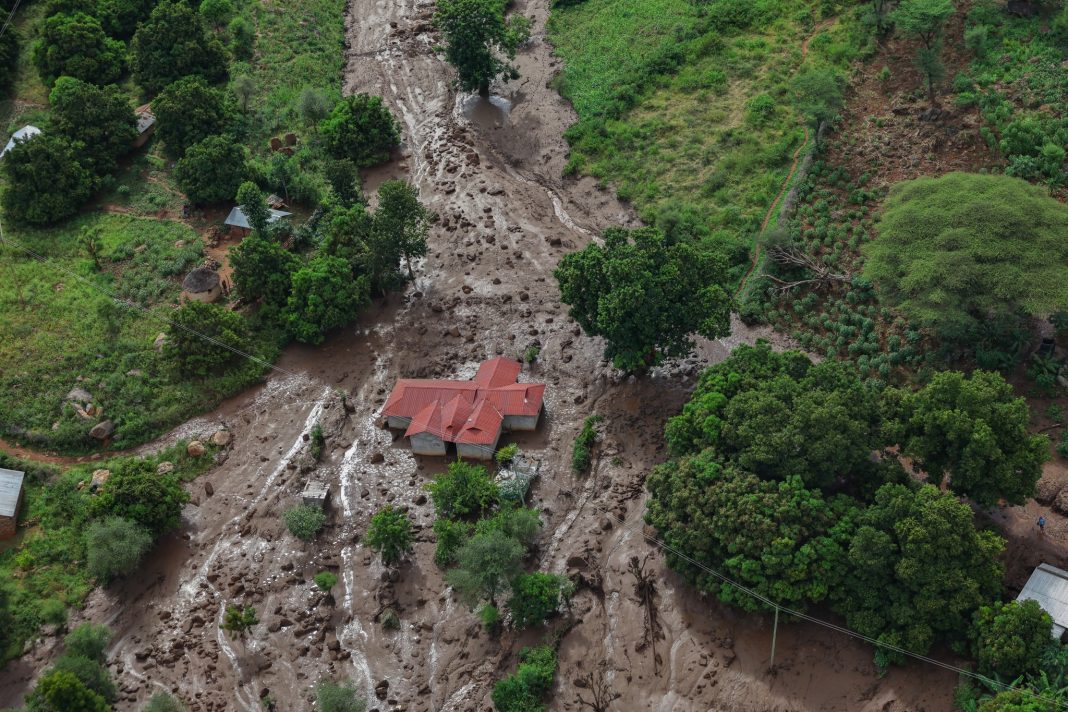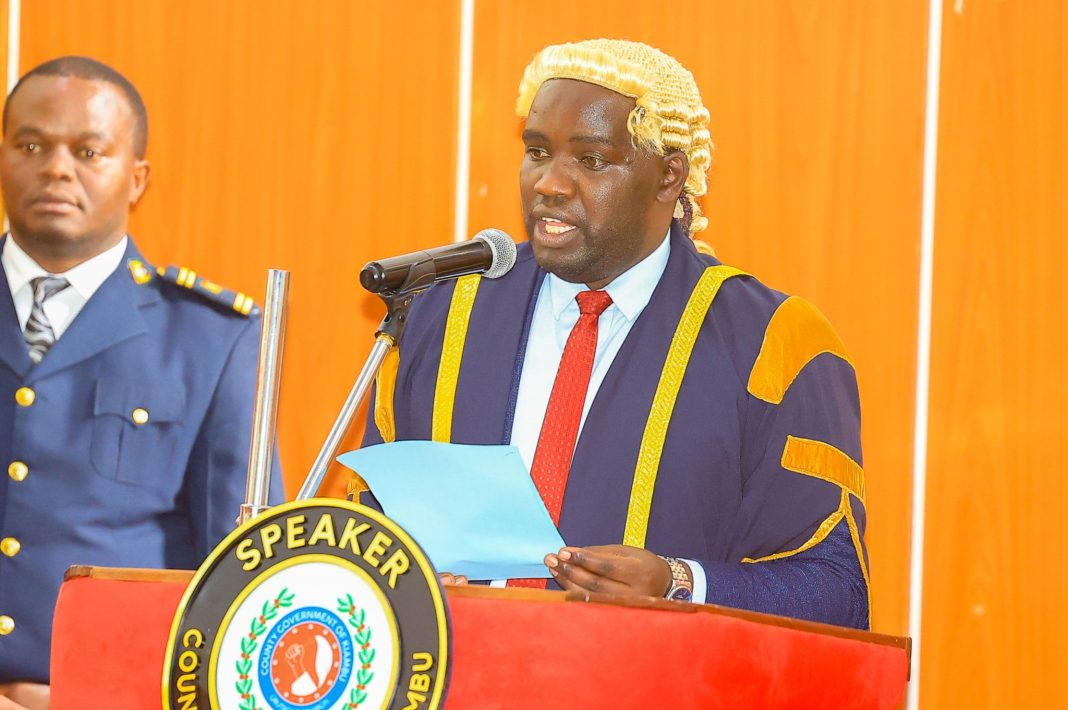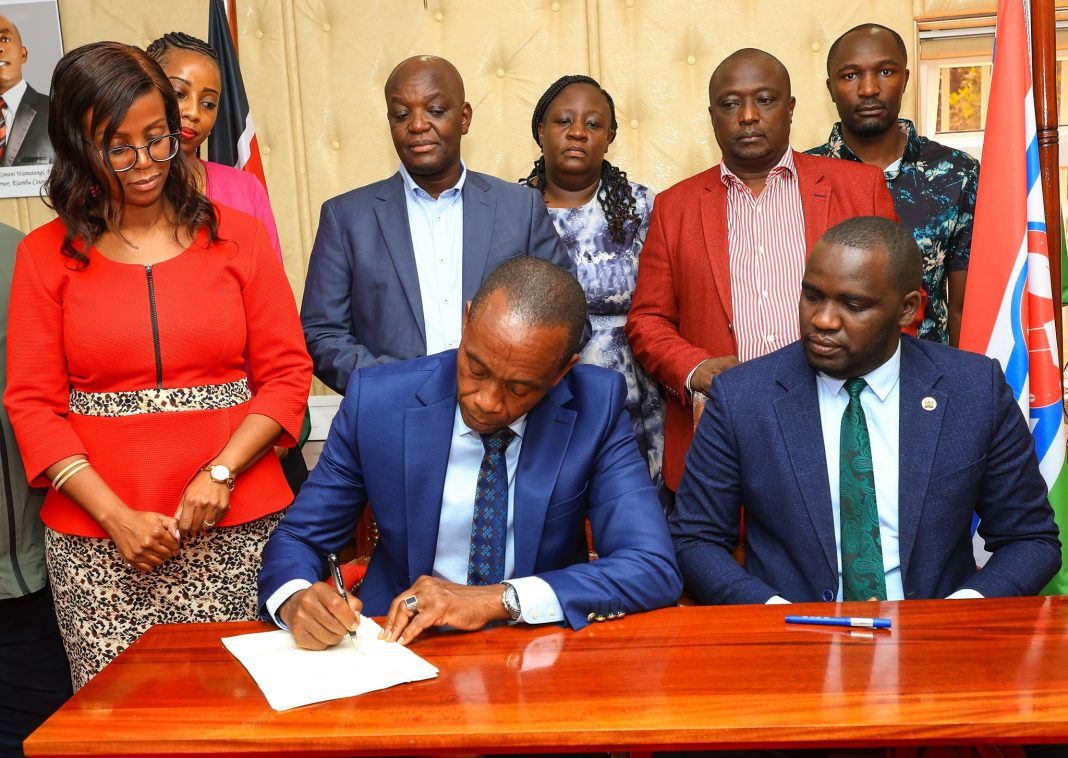A parliamentary committee has linked the recent deadly landslides in Elgeyo Marakwet and other parts of the country to rampant deforestation and poor land use, warning that environmental degradation is worsening Kenya’s vulnerability to climate-related disasters.
The Departmental Committee on Regional Development has urged the government to strengthen disaster preparedness, boost humanitarian aid, and enforce forest conservation to prevent similar tragedies in the future.
Committee Chairperson Peter Lochakapong (MP, Sigor) said the ongoing floods and landslides have claimed at least 34 lives, displaced hundreds, and destroyed schools, roads, and homes across several counties. He called for quick and coordinated emergency response to support affected families.
“The Government of Kenya, under the directive of President William Ruto, has activated multi-agency emergency response protocols involving both national and county governments, the National Disaster Management Unit, the Kenya Red Cross, and other partners,” said Lochakapong.
“We want those tasked with humanitarian efforts to move with speed and ensure no more lives are lost.”
He was accompanied by Vice Chairperson Liza Chelule (Nakuru County Woman Representative), Khamis Abdi Chome (Voi), Basil Robert (Yatta), and Paul Abuor (Rongo).
The committee identified Chesongoch in Elgeyo Marakwet, Kimende Escarpment in Kiambu, Kamutungi in Embu, Tinderet in Nandi, and Narok South among the hardest-hit areas, with emergencies also reported in Tana River, Laikipia, and the Lake Basin region.
The lawmakers urged Kenyans to stay alert by avoiding flooded roads, rivers, and steep slopes, and to heed weather updates from the Kenya Meteorological Department and the Ministry of Interior. They also warned against spreading unverified information that could cause panic.
Lochakapong revealed that Parliament is finalising the Disaster Risk Management Bill, which seeks to create a stronger legal framework for disaster preparedness, response, and recovery.
“This tragedy serves as a painful reminder of the urgent need to strengthen our disaster preparedness and climate resilience measures,” he said.
Rongo MP Paul Abuor said the committee will conduct a fact-finding mission in affected areas to assess damage and gather testimonies from victims, adding that environmental degradation has become a serious national concern.
“We have observed that deforestation is a major contributing factor to these landslides. Environmental conservation must be at the heart of our disaster mitigation efforts,” Abuor noted.
Chelule extended condolences to families who lost loved ones and urged parents to monitor their children closely during the ongoing rains, particularly with schools closed for the holidays.
“We want to urge parents, especially mothers, to keep a close watch over their children during this period to ensure they do not fall victim to flood-related accidents,” she said.
The committee appealed for support from humanitarian organisations, the private sector, and international partners to provide food, water, and medical aid to affected families.
In Chesongoch, the worst-hit region, four villages Kasegei, Kaptul, Kwemoi, and Kipkirown were cut off by landslides, blocking access roads and delaying rescue operations. The Kenya Red Cross confirmed that by Monday evening, 34 deaths had been recorded, while more than 200 households were displaced and sheltered at Chesongoch Primary School.
Red Cross North Rift Regional Head Oscar Okumu said the terrain remains inaccessible, forcing rescue teams to trek long distances through unstable ground to reach survivors.
“Our teams are trekking up to three kilometres across rivers and unstable ground to reach victims. We’ve also set up temporary shelters to coordinate relief operations,” Okumu said.
He warned of possible disease outbreaks due to poor sanitation and limited clean water, adding that psychosocial support and water sanitation services have been scaled up.
Government Spokesman Isaac Mwaura said recovery efforts are ongoing to restore essential services, including power and water pipelines, as authorities deploy drones and GIS technology to locate trapped victims.
Experts have warned that unless Kenya addresses deforestation, poor land management, and uncontrolled settlement on unstable slopes, the deadly pattern of floods and landslides will continue to claim lives year after year.







paypal casino android
References:
https://rentry.co/74098-best-paypal-casinos-2025-online-casinos-accepting-paypal
usa casino online paypal
References:
alphamokjang.com
All the casinos offer your usual array of table games
and electronic games with pokies a-plenty. North Carolina
is home to three casinos, each offering a distinct gaming experience set against
the backdrop of the state’s scenic beauty. With a focus
on responsible gaming, North Carolina’s casinos aim to offer a balanced and enjoyable experience for visitors.
Access COMPED cruises, biggest tournaments, and best
offers at casinos and cruise lines around the world.
The inner city does not allow casinos, but the ones I mentioned are located in the metropolitan area where you can find dozens of
others as well.
Ft of gaming space with 1,000 gaming machines and no table games.
67, 788 sq ft of gaming space with 1,300 gaming
machines 80 table and poker games. Ft of gaming space with 950 gaming machines and 200
table and poker games.
References:
https://blackcoin.co/best-fast-payout-casinos-in-australia/
All the casinos offer your usual array of table games and electronic games with
pokies a-plenty. North Carolina is home to three casinos, each offering a distinct gaming experience set against the backdrop of the state’s scenic beauty.
With a focus on responsible gaming, North Carolina’s casinos aim to offer a balanced and enjoyable experience for visitors.
Access COMPED cruises, biggest tournaments, and best offers at casinos and cruise lines around the world.
The inner city does not allow casinos, but the ones
I mentioned are located in the metropolitan area where you can find dozens of others as well.
Ft of gaming space with 1,000 gaming machines and no table games.
67, 788 sq ft of gaming space with 1,300 gaming machines
80 table and poker games. Ft of gaming space with 950 gaming machines and 200 table and poker games.
References:
https://blackcoin.co/37_best-online-casinos-for-vip-players-2022_rewrite_1/
Unser Gaming-Portal erfüllt die höchsten Standards der
Branche und regelmäßige Audits stellen sicher, dass es vollständig im Einklang mit deutschem Recht steht.
Die Einhaltung deutscher Gesetze zur ID-Verifizierung schützt Ihre Rechte und stellt sicher, dass Abhebungen schnell und sicher bei
Ihnen ankommen. Für einen sicheren Zugriff und schnelle Transaktionen wird empfohlen, zuerst Ihr Profil einzurichten.
Außerdem müssen Sie jetzt ein sicheres Passwort auswählen.
Beim Sport gilt ebenfalls eine Mindesteinzahlung in Höhe
von 20 € für den ersten Bonus und die Umsatzanforderung liegt bei 7x.
Die 100 Freispiele bekommen Sie fünf Tage lang zu je 20 Stück zugeteilt.
Beachten Sie, dass die meisten Tischspiele und Live-Casino-Spiele nicht zur Anforderung zählen. Den Casinobonus bekommen Sie ab einer Einzahlung in Höhe von 20 €.
Entscheiden Sie sich entweder für den Casino- oder für den Sportbonus.
Der Kundendienst kümmerte sich sofort darum und löste das Problem in kürzester Zeit.
Sie haben wirklich alles getan, um sicherzustellen, dass meine Spielerfahrung so
reibungslos und angenehm wie möglich war. Ich habe festgestellt, dass ihr VIP-Programm eine Vielzahl von Vorteilen bietet.
Es bietet eine angenehme Atmosphäre, eine riesige Auswahl an Spielen und hervorragenden Kundenservice.
References:
https://online-spielhallen.de/evolve-casino-login-ihr-zugang-zum-spielvergnugen/